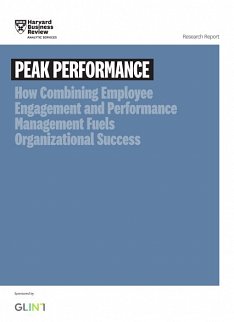Posts from: 2009
Blog Post

Year Up offers urban young adults a chance at a better life. It also offers a model of training that educators, managers and HR professionals should pay attention to.
I recently had the pleasure of visiting the birthplace of Year Up. Like many successful startups, the original space in Boston's financial district is funky, distinctive and graced with personal touches. Creaky wood floors are warmed by oriental rugs; high ceilings with exposed pipes provide architectural interest; colorful handprints of the members of the first graduating class claim the wall of the common area, where visitors and students can relax on oversize leather sofas and chairs.
Blog Post

This is Part Two of my interview with Todd Pierce, CIO of Genentech. In Part One, we spoke about effective communication.
Blog Post
The holy grail of post-recession business will be profitable growth. The very idea of profitable growth is full of contradiction, as growth generally requires investment. With revenues unlikely to outpace that investment in what economists are predicting will be an anemic, drawn-out recovery, companies that have already been doing a lot of cost cutting will have to become even more efficient. This will put unusual pressure on executives to place the right bets when it comes to investments (based on strong customer insight and market knowledge). And it will require excellent management abilities and flexible, responsive, lower-cost IT.
Blog Post
As part of our interview, I asked Genentech CIO Todd Pierce to describe the most important thing he'd learned about effective communication in the course of his career. He gave me not one but seven critical facets of great communication.
Know your audience: Really know who you're communicating with and what you're communicating.
Blog Post
Great communicators focus on the perspectives, priorities and frames of reference of the people they seek to communicate with. At Genentech, that means science. Todd Pierce, SVP and CIO at Genentech, views effective communication as the “circulatory system" of business. Everything he does takes that into account.
Being in the drug discovery/drug development business, Genentech runs on quickly gathering large volumes of information and analyzing it effectively. With 30-40 clinical trials going on at any given time, that's a lot of information.
Blog Post
Government agencies are in fiscal trauma right now. Billions of dollars over budget, many states are taking drastic measures to cut costs. Federal CIO Vivek Kundra and CTO Aneesh Chopra are aggressively pursuing software as a service and cloud computing as one way to cut costs, and the state of Utah is planning a private cloud to serve local agencies.
Blog Post

Effective CIOs all have their own style and approach to leadership. One thing they have in common is the ability to communicate well at all levels of their organizations. They understand that communication is a collaborative process, as much about asking questions as answering them; as much about listening as talking. It's a conversation.
Blog Post

Storytelling is a powerful tool when you want to drive organizational change, sell an idea, or just make a point.
There's nothing new about storytelling. As a species, it's in our DNA. Long before we had books and newspapers, telephones and telegraphs, the Internet and Kindles, our ancestor's sat around the fire and told stories. More than storytellers, we're story consumers. Even people who think they're no good at telling stories generally love to hear them. We just respond better to information when it's delivered with a memorable anecdote or example (i.e., story).
Blog Post
Communicating effectively with business colleagues has ranked as one of CIOs' top three critical success factors for as long as I've been tracking these things -- and I've been tracking them for a long time. I've wondered over the years why this issue hasn't gone away. Why is it so damn hard for IT leaders to get their message across?
First of all, this is not just a CIO problem. People in general are terrible at conveying a concept or message intact from their brain to that of their "listener" (a misused term if ever there was one). As Celtics coach Red Auerbach used to say, "it's not what you say, it's what they hear." Influencing what people hear involves a lot more than just forming the right words.
Blog Post
I was asked to give a couple of talks this spring giving my perspective on the current state of technology in business. I always think the present is better understood by looking at the past, so I put together a presentation looking at a) how things have developed over the past 20 or so years (not coincidentally, the span of time I was involved with CIO Magazine), and b) the challenges and opportunities I see businesses in general and CIOs in particular facing during this tumultuous time. I've posted a version of this talk on Slideshare, complete with an audio narration. Please check it out and let me know if your view lines up with mine or how you see things differently.




